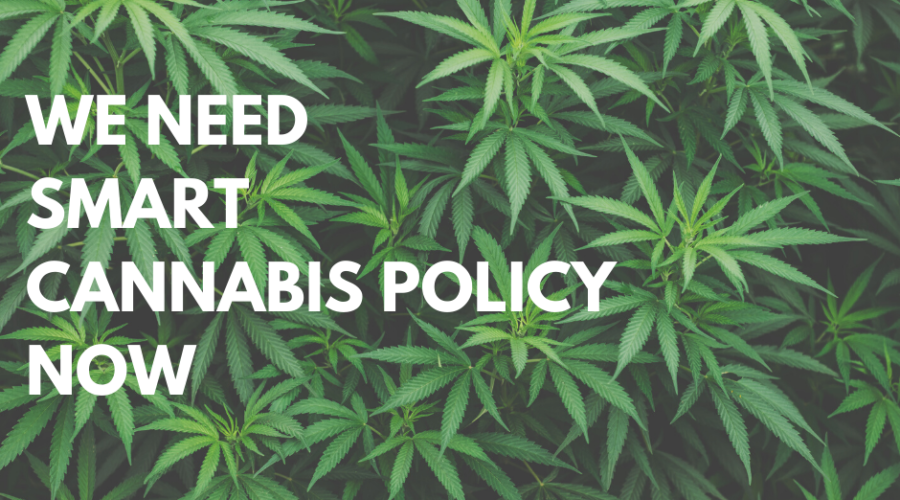Légalisation du cannabis : où en est-on ?
Un marché commercial va-t-il enfin émerger ?
Lors d’un vote au parlement, les législateurs allemands ont récemment adopté un projet de loi visant à légaliser le cannabis. Cette réforme, attendue depuis des années, est l’une des principales promesses de l’actuelle coalition gouvernementale dirigée par le chancelier social-démocrate Olaf Scholz.
Toutefois, malgré l’enthousiasme de nombreux militants pro-cannabis, nous sommes loin de voir des coffee shopss’ouvrir dans tout Berlin ou Munich, car la légalisation n’autorise pas une véritable commercialisation du produit. Selon la nouvelle loi, tout citoyen allemand âgé de 18 ans pourra posséder 25 grammes de cannabis pour son usage personnel. Les résidents seront autorisés à cultiver leur propre cannabis ou à rejoindre des « associations de culture » où le cannabis est cultivé et partagé collectivement entre les membres.
Ce modèle de légalisation semble être la quintessence d’un gouvernement allemand de gauche, car s’il accroît les droits des citoyens à décider de ce qu’ils font de leur propre corps, il ne leur permet pas de gagner de l’argent avec. La culture à domicile et les associations de culture dans des squats d’étudiants berlinois délabrés ne sont pas exactement ce à quoi ressemblera le consommateur de cannabis du futur. Les produits contenant du THC sont devenus courants, et ces consommateurs n’investissent pas d’efforts dans la culture de leurs propres plantes.
Dans certains Etats américains, une légalisation en bonne et due forme signifie que des entreprises de différentes tailles professionnalisent la culture, l’exploitation, la commercialisation et la vente de la plante de cannabis. Leurs produits s’améliorent au fur et à mesure qu’elles réalisent des bénéfices. L’Allemagne poursuit un modèle qui n’est pas très différent de celui des vendeurs de rue – le cannabis sera certainement de qualité équivalente.
Imaginez qu’à la fin de la prohibition de l’alcool, le gouvernement américain ait dit : « Oui, vous pouvez avoir de l’alcool sur vous, et vous pouvez le faire vous-même et avec vos amis, mais Dieu vous garde de le faire pour gagner de l’argent. » On peut soutenir que cette proposition aurait été plus dangereuse, car des erreurs dans la distillation de l’alcool peuvent entraîner la mort, alors que le processus de production du cannabis n’implique actuellement pas ces risques élevés, à l’exception de la drogue qui est mélangée à des stupéfiants plus puissants sur le marché noir. Mais d’une manière générale, cela aurait été tout aussi ridicule.
Une manière mature de traiter les produits qui peuvent nous mettre sous influence n’est pas de poursuivre ce type de semi-légalisation, mais de fournir un marché commercial responsable et professionnel.
L’Allemagne est l’un des nombreux pays qui ont déçu à cet égard. Malte, le Luxembourg et d’autres pays européens ont également fait des promesses plus importantes qu’ils ne peuvent tenir sur cette question, parce qu’ils ne veulent pas rompre les accords internationaux.
Les conventions de l’ONU qui interdisent la légalité du cannabis ont vu le jour dans les années 1960 et, selon la législation européenne, aucun Etat membre de l’UE ne doit enfreindre les conventions de l’ONU. Pourtant, c’est ce qu’ils font. Dans le cas des traitements assistés à l’héroïne, certains Etats membres de l’UE enfreignent déjà les conventions de l’ONU. Les Pays-Bas, la République tchèque et le Portugal, qui ont dépénalisé le cannabis, n’ont peut-être pas enfreint les conventions de l’ONU en tant que telles, mais ils ne font certainement pas grand-chose pour lutter contre la prolifération des stupéfiants, notamment parce que Lisbonne et Prague ont même dépénalisé toutes les drogues dans leur pays.
Le Canada a choisi d’ignorer les conventions des Nations unies et de légaliser le cannabis. Malgré un parcours semé d’embûches et la surréglementation mise en place par le gouvernement fédéral canadien, avec des restrictions sur la présentation des produits ou sur la quantité autorisée à être cultivée, le Canada dispose toujours d’un meilleur modèle juridique que les pays européens qui, à ce jour, n’en ont toujours pas. Pourquoi sommes-nous si mauvais dans ce domaine ?
L’une des raisons est qu’il reste de nombreuses personnes qui s’opposent à la légalité du cannabis. Elles invoquent des raisons de santé publique ou des convictions religieuses ou morales qui s’opposent à l’autorisation d’une drogue psychoactive. Mais il y a aussi ceux qui, dans le monde politique, sont d’accord en principe avec l’idée d’autoriser le cannabis, mais qui n’ont ni le courage ni les connaissances nécessaires pour créer un véritable marché commercial.
Souvent, la raison en est qu’ils sont des ennemis du commerce, des anticapitalistes. Ils ne comprennent pas que le capitalisme enrichit à la fois les producteurs et les consommateurs, et que chaque produit et service mis à disposition sur un marché libre améliore son prix et sa qualité. Ainsi, s’il est bon qu’un nombre croissant de décideurs politiques pensent que le cannabis devrait être légal, le problème est qu’ils sont ceux qui contribueront à créer une véritable industrie du cannabis en Europe.
Originally published here












